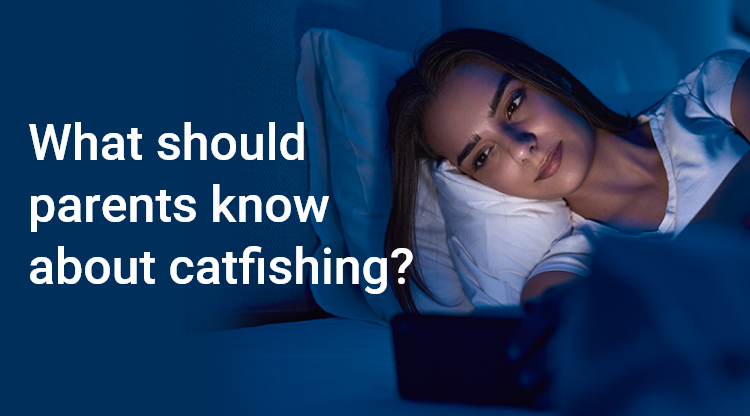It is very common for the things we see on the internet to not be exactly what they seem. Social media platforms are full of carefully curated images that show the good or exciting parts of people’s lives, while leaving out the ugly and boring parts. Even if they leave out the undesirable aspects of their lives, most of us believe that the people we meet and follow online are real. What happens though, when it turns out that an online friend or acquaintance never even existed?
It’s quite possible that, like most adults and parents, you had never heard of online catfishing until the MTV show “Catfish” aired in 2013. If you still don’t know what catfishing is, it is “someone who pretends to be someone else posting false information, such as someone else’s pictures, on social media sites usually with the intention of getting someone to fall in love with you,” according to the Catfish show’s website.
Catfishing and Teenagers

Anyone can become the target of a catfishing scheme, but teenagers are especially in danger of falling prey to online catfishing schemes. For one, unlike their parents, today’s teens are coming of age in a time where it is very common to make friends on the internet and are likely less suspicious of people they meet online. They have grown up using social media as a common form of communication and are much less likely to question someone’s motives for trying to connect with them.
A catfisher knows how to identify vulnerable people who will likely fall for their schemes, and a lonely, depressed teenager who is insecure about their appearance or naive about the world is a perfect target.
Teenagers also often fall prey to being catfished by someone they know as a form of revenge or as a way to bully them. An extreme case of this was a young 13 year old girl named Megan Meier, who was targeted by the mother of one of her classmates. Megan was led to believe she was communicating with a teenage boy, when in fact the boy never existed. The mother of the classmate and several other people were behind the fake profile, and when the messages from the fake account changed from friendly to hateful and cruel, Megan became so distraught she took her own life.
What Parents Need to Know

The danger of teens being catfished on the internet is very real, and can result in devastating consequences. It’s so important for parents to protect their children from online predators, and to educate them on how to spot a catfisher and the danger they pose to their safety and well being. Teach them what signs to look out for that the person they are communicating with online may not be who they say they are.
The best advice is to only allow your teens to connect online only with people they actually know. If they must add new friends via the internet, make sure they know to ask themselves these questions:
- Do you have friends in common with this person?
- If not, how did this person find you and why are they reaching out to you?
- Does the person refuse to use other platforms, like Skype, FaceTime, or telephone to communicate?
They need to be aware of the signs that something just isn’t quite right.
It’s also just as important that you keep a watchful eye on who your child is communicating with online. As an adult, you are more likely to spot the warning signs of a catfisher than a child is. A parental cell phone tracker app allows you to keep tabs on what your children are doing online in order to keep them safe from a multitude of internet dangers. To find out if a parental control app is right for you, download the free Easy Logger App today.
If you need to track your child’s location, monitor your teen’s behavior or simply stay informed about the calls/texts they are making and receiving, the Easy logger is for you. 1 million+ users, including major corporations, use the Easy Logger app for monitoring, geo-tracking and to keep an eye on phone misuse. Download the Easy Logger app today!

